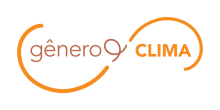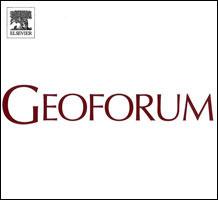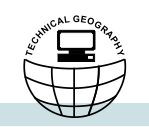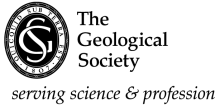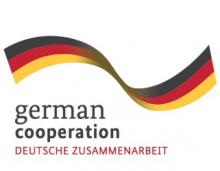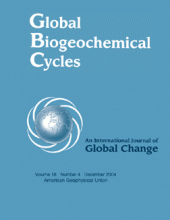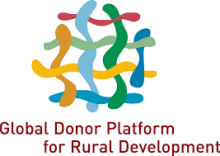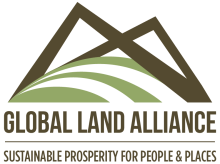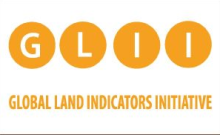The Land Library includes resources from more than 1,900 national and international information providers. Learn more about the organizations and institutions using the Land Portal to share their open-access research, data and stories.
Gender Action
Gender Action's mission is to promote women's rights and gender equality and ensure women and men equally participate in and benefit from International Financial Institution (IFI) investments in developing countries.
Gênero e clima
A partir de 2018, o debate sobre mudança climática feito no Observatório do Clima amadureceu ao ponto de enxergar a necessidade de relacionar gênero e clima. Assim, seria possível ver com mais qualidade como essa mudança não atinge todas as pessoas da mesma forma.
A proposta de um grupo que discutisse Gênero e Clima surgiu para traçar estratégias entre estas temáticas, a fim de trazer para a realidade ações de transformação da atual conjuntura.
Somos uma comunidade de prática e articulação composta especialmente por mulheres de organizações do Observatório do Clima e pessoas convidadas envolvidas com a temática.
O OC entende que deve fortalecer a relação entre gênero e clima, envolvendo diversos atores e saberes, e se propondo a trazer um panorama de ambos os temas no Brasil, levando em consideração suas diversas facetas.
Geneva Call
Geneva Call is a neutral and impartial non-governmental organization based in Geneva, Switzerland. The NGO is dedicated to promoting respect by armed non-state actors (ANSAs) for international humanitarian norms in armed conflict and other situations of violence, in particular those related to the protection of civilians. Geneva Call is currently focusing its efforts on banning the use of anti-personnel mines, protecting children from the effects of armed conflict, prohibiting sexual violence in armed conflict, working towards the elimination of gender discrimination and building armed non-State actors’ knowledge and implementation of broad International Humanitarian Law (IHL) rules.
Geo-Eco-Trop
GEO-ECO-TROP aims to promote the Natural Sciences and Earth Sciences of tropical and subtropical environments and the dissemination of this knowledge to the public.
Articles appearing in the journal GEO-ECO-TROP are published in French and English, possibly in Spanish.
The disciplines developed are plant and animal ecology, climatology, physical and human geography, geomorphology, geology of recent terrain and geo-archaeology of hot regions, current and past.
Geoffrey Payne and Associates
Geoffrey Payne and Associates (GPA) was established in 1995 and has since undertaken consultancy, training and research assignments throughout the world. Clients include national governments, the UK Department for International Development (DFID), UN-HABITAT, SIDA, the World Bank, Cities Alliance and various NGOs and universities. A range of materials, from books, articles, media packs and documentary films have been produced and can be found under the publications link.
The main focus of GPA activities is to improve options for the urban poor in developing countries to obtain access to land, housing, services and credit on terms appropriate and affordable to the poor. Climate change and non-renewable resources are presenting even affluent societies with major challenges. For the 1 billion people presently living in slums and informal settlements around the world, and UN projections that this will double to 2 billion by 2030 unless radical action is taken, the challenge is even greater. The aim of GPA is to contribute to addressing this challenge.
Recent and current activities include:
- Evaluations of land titling programmes.
- Innovative approaches to improving tenure security for the urban poor.
- Reviews of regulatory guidelines for affordable legal shelter.
- Public-private partnerships in land for housing and innovative approaches to the provision of secure tenure for the urban poor.
- Participatory urban development projects in Lesotho, Cuba and elsewhere.
- Contributing to the Development From Disasters Network (DFDN).
- Contributing to the work of the Building and Social Housing Foundation.
Geoforum
Geoforum is a leading international, inter-disciplinary journal publishing innovative research and commentary in human geography and related fields. It is global in outlook and integrative in approach. The broad focus of Geoforum is the organisation of economic, political, social and environmental systems through space and over time. Areas of study range from the analysis of the global political economy, through political ecology, national systems of regulation and governance, to urban and regional development, feminist, economic and urban geographies and environmental justice and resources management. Geoforum publishes research articles that are conceptually-led and empirically-grounded, critical reviews of recent research, and editorial interventions. It also features a highly-regarded 'themed issue' format that enables a focused exploration of emergent and/or significant areas of inquiry.
Geographia Technica
Geographia Technica is a journal devoted to the publication of all papers on all aspects of the use of technical and quantitative methods in geographical research. It aims at presenting its readers with the latest developments in G.I.S technology, mathematical methods applicable to any field of geography, territorial micro-scalar and laboratory experiments, and the latest developments induced by the measurement techniques to the geographical research.
Geographia Technica is dedicated to all those who understand that nowadays every field of geography can only be described by specific numerical values, variables both oftime and space which require the sort of numerical analysis only possible with the aid of technical and quantitative methods offered by powerful computers and dedicated software.
Our understanding of Geographia Technica expands the concept of technical methods applied to geography to its broadest sense and for that, papers of different interests such as: G.l.S, Spatial Analysis, Remote Sensing, Cartography or Geostatistics as well as papers which, by promoting the above mentioned directions bring a technical approach in the fields of hydrology, climatology, geomorphology, human geography territorial planning are more than welcomed provided they are of sufficient wide interest and relevance.
Geological Society of London
The Geological Society of London is the UK national society for geoscience, providing support to over 10,000 members in the UK and overseas. Founded in 1807, we are the oldest geological society in the world.
Geomatics, Landmanagement and Landscape
By the decision of the authorities of the Department of Environmental Engineering and Geodesy at the University of Agriculture in Krakow of 17 October 2012 a scientific quarterly magazine named Geomatics, Landmanagement and Landscape (GLL) was created.
The purpose of the quarterly magazine are presentations, discussions and exchange of scientific thoughts in the field of broadly understood planning, shaping and protection of the environment and landscapes; modern geoinformatic techniques, surveying, rural areas development and property management.
The ambition of the publishers is to make the quarterly magazine one of the leading scientific publishing house concerning the above range in Central and Eastern Europe. Creation of such a publishing house is the result of many years of cooperation of the Faculty of Environmental Engineering and Land Surveying with many research centers in Europe and in the world. The newly published scientific journals contain only English-language, reviewed original research articles. The advantage of the quarterly magazine is its regularity of appearance and high substantial value. The quarterly magazine is published by the Publishers of the University of Agriculture in Krakow in the issue of 350 copies. Over time, the journal will published only in the electronic version.
German Development Institute
The German Development Institute, Deutsches Institut für Entwicklungspolitik, (DIE) is one of the leading think tanks for development policy worldwide.
The Institute is based in the UN-City of Bonn. DIE builds bridges between theory and practice and works within international research networks. The key to DIE’s success is its institutional independence, which is guaranteed by the Institute’s founding statute.
The German DIE is a non-profit company with limited liability. The Institute’s institutional independence is guaranteed by its founding statute. The shareholders are the Federal Republic of Germany and the Federal State of North Rhine-Westphalia.
Since its founding in 1964, the German Development Institute / Deutsches Institut für Entwicklungspolitik (DIE) has based its work on the interplay between Research, Consulting and Training. These three areas complement each other and are the factors responsible for the Institute’s distinctive profile.
German Federal Ministry for Economic Cooperation and Development
Why do we need development policy?
Today, our lives are much more interconnected with those of people living on other continents than ever before. We have many advantages because of that. However, it also means that we have greater responsibility than previous generations, because the international community is facing challenges for which it needs to find global solutions. Radical changes need to be made – at global level and as soon as possible. Germany is taking on its responsibility for that.
Germany's contribution to achieving international development policy objectives
A world in which everyone can live a self-determined life in freedom, a world without poverty, violent conflicts and environmental degradation – international development policy has set itself the goal of coming closer to this ideal. No state can settle the burning issues of today on its own. That is why the international community has marked out stages on the road to achieving jointly defined development goals in a number of agreements and treaties. They set the frame for global development cooperation and, of course, Germany’s contribution.
German Institute for Human Rights
The German Institute for Human Rights is the independent National Human Rights Institution in Germany. It is accredited according to the Paris Principles of the United Nations (A-status). The Institute’s activities include the provision of advice on policy issues, human rights education, information and documentation, applied research on human rights issues and cooperation with international organizations. It is supported by the German Bundestag. The Institute was mandated to monitor the implementation of the UN Convention on the Rights of Persons with Disabilities and the UN Convention on the Rights of the Child and established Monitoring Bodies for these purposes.
German Institute of Global and Area Studies
The GIGA German Institute of Global and Area Studies is an independent social science research institute based in Hamburg, Germany. Our mission is to analyse political, social, and economic developments in Africa, Asia, Latin America, and the Middle East, as well as global issues. As a member of the Leibniz Association, we are committed to the Leibniz principle of “theoria cum praxi”: science for the benefit of society.
A Truly Global Approach
The GIGA stands for an approach that is global in content, reach, and structure. It combines in-depth area expertise with comparative, interdisciplinary, and multi-level analysis, generating insights that are relevant from an academic and a real-world perspective. It takes into account the philosophical traditions and historical experiences of all world regions and reaches out to a global audience. We are proud to collaborate with leading institutions and researchers worldwide, and to apply a well-informed, inclusive, and pluralistic view to scholarship and policy. Find out more about our approach and vision (PDF).
Research
The world is in a state of transition. Economies and societies around the globe are becoming increasingly interdependent; rising powers such as China and India are exerting growing influence; and while new opportunities are arising, new forms of terrorism, violence, and conflict are also emerging. Building on its reputation as one of the leading research institutes for Area Studies and Comparative Area Studies, the GIGA is committed to using academic rigour to help make sense of the increasingly complex world situation. Read more about our research.
Knowledge Transfer and Policy Advice
Our researchers are sought-after experts among decision makers in politics, business, and civil society, as well as among media representatives and other stakeholders. Research-based policy advice and knowledge transfer to the wider public are essential elements of our mandate. Thus, not only are our research findings published in the top peer-reviewed academic journals and prestigious university publishing houses, but our outreach activities also include our three well-established publication series and impactful public and exclusive events. Find out more.
Germanwatch e.V.
“Observing, Analysing, Acting” under this motto Germanwatch has been engaged since 1991 for global equity and the preservation of livelihoods. The politics and economics of the North, with their global consequences, stand at the centre of our work.
The situation of marginalised people in the South form the starting point for our engagement for sustainable development. The political and globalised market structures of the North, as well as their resource-intensive mode of production, which is now being increasingly imitated, are influencing human lives worldwide.
We advocate for a political, economic and social framework which can ensure a future for the people of the South, who are being pushed to the margins of society through unbridled globalisation and whose very existence is threatened by the loss of their ecological and economic foundations of their livelihoods.
Géographie, Économie, Société
Conçue pour comprendre et analyser l’évolution des sociétés contemporaines, la revue Géographie, économie société apporte une contribution originale et au plus haut niveau international, notamment dans le champ de l’économie territoriale où elle est le leader.
Ghana Journal of Development Studies
The Journal is published and funded from the resources of the Faculty of Integrated Development Studies, University for Development Studies, Ghana
his journal provides immediate open access to its content on the principle that making research freely available to the public supports a greater global exchange of knowledge and sharing of ideas.
Ghent University
Ghent University is a top 100 university and one of the major universities in Belgium. Our 11 faculties offer a wide range of courses and conduct in-depth research within a wide range of scientific domains.
GIGA Institute of African Affairs
The GIGA Institute of African Affairs (IAA) has been researching political and economic developments on the continent since 1963, primarily focusing on the areas south of the Sahara. The thematic core of the institute’s research consists of institutional structures (such as political parties, electoral systems and constitutional courts), conflicts over resources and religious domination, foreign investment and its consequences, and African leading powers. By working with local partners, IAA researchers gain comprehensive knowledge of developments in the region. This facilitates detailed analyses, which serve public and private decision-makers as important sources of information.
The IAA is the only institute in Germany that continuously monitors developments in the entire sub-Sahara region. It acts as a hub for the Africa-interested German public as well as for European research institutions. Under the umbrella of the GIGA, the IAA is the seat of the secretariat of the Vereinigung für Afrikawissenschaften in Deutschland (VAD; African Studies Association in Germany) and is represented on the board of the Africa-Europe Group for Interdisciplinary Studies (AEGIS). In addition, the IAA co-edits the award-winning Africa Yearbook and Africa Spectrum, which is listed on the Social Science Citation Index.
Global Biogeochemical Cycles
Global Biogeochemical Cycles features research on regional to global biogeochemical interactions, as well as more local studies that demonstrate fundamental implications for biogeochemical processing at regional or global scales. Published papers draw on a wide array of methods and knowledge and extend in time from the deep geologic past to recent historical and potential future interactions. This broad scope includes studies that elucidate human activities as interactive components of biogeochemical cycles and physical Earth Systems including climate. Authors are required to make their work accessible to a broad interdisciplinary range of scientists.
Global Canopy
At Global Canopy we focus on the market forces driving two thirds of deforestation worldwide.
We do not create protected areas to keep rainforests standing, but focus instead on the production, trade and financing of the key commodities responsible for agricultural expansion into tropical forests.
We provide data, insight and guidance for the companies, investors and governments already taking positive action, and help shine a light on those that need to do more.
And we target the trillions of dollars of investment and lending which contribute to destroying forests and other vital natural capital, while highlighting new opportunities for sustainable investment.
Global Coalition on Women and AIDS
WHO WE ARE
The Global Coalition on Women and AIDS (GCWA) is a worldwide alliance bringing together civil society groups working on HIV, women, girls and gender equality, including networks of women living with HIV, women’s rights organizations, AIDS service organizations, faith-based organizations, networks of women from key populations, care-giving networks, men and boy’s organizations working explicitly for gender equality, the private sector, and the United Nations system, hosted by the UNAIDS secretariat. Since its inception in 2004, the GCWA has strived to contribute to the strategic positioning of women and girls as integral to the HIV response, ensuring its relevance to the dynamic nature of the HIV epidemic, emerging issues related to women’s sexual and reproductive health and rights, and shifting aid architectures, to best meet the needs of women and girls.
OUR PLEDGE
We call on all nations, the UN system and other multilaterals, civil society organizations, and community, national, and world leaders to eliminate the forces that put girls and women at risk of HIV and to secure health and human rights for all.
We hold ourselves, as well as key actors in the AIDS response, accountable to girls and women, especially the more marginalized and disadvantaged, including those living with and affected by HIV. We will keep a watching brief over AIDS policies, programmes, and resource allocation in order to monitor and collectively achieve real progress for girls and women.
Global Donor Platform for Rural Development
The Global Donor Platform for Rural Development is a network of 38 bilateral and multilateral donors, international financing institutions, intergovernmental organisations and development agencies.
Members share a common vision that agriculture and rural development is central to poverty reduction, and a conviction that sustainable and efficient development requires a coordinated global approach.
Following years of relative decline in public investment in the sector, the Platform was created in 2003 to increase and improve the quality of development assistance in agriculture, rural development and food security.
// Agriculture is the key to poverty reduction
Agriculture, rural development, and food security provide the best opportunity for donors and partner country governments to leverage their efforts in the fight against poverty.
However, the potential of agriculture, rural development and food security to reduce poverty is poorly understood and underestimated.
Cutting-edge knowledge of these issues is often scattered among organisations, leading to competition, duplication of efforts, and delays in the uptake of best practices.
// Addressing aid effectiveness
Therefore the Platform promotes the principles of the Paris Declaration on Aid Effectiveness, the Accra Agenda for Action for sustainable outcomes on the ground, and the Busan Global Partnership for Effective Development Cooperation.
Increasing aid to agriculture and rural development is not enough. Donors must work together to maximise development impact.
// Adding value
The Platform adds value to its members’ efforts by facilitating the exchange of their development know-how, which consolidates into a robust knowledge base for joint advocacy work.
Working with the Platform, members are searching for new ways to improve the impact of aid in agriculture and rural development.
- An increased share of official development assistance going towards rural development
- Measurable progress in the implementation of aid effectiveness principles
- Greater use of programme-based and sector-wide approaches
- More sustainable support to ARD by member agencies
// Vision
The Platform endorses and works towards the common objectives of its member institutions to support the reduction of poverty in developing countries and enhance sustainable economic growth in rural areas.
Its vision is to be a collective, recognised and influential voice, adding value to and reinforcing the goals of aid effectiveness in the agricultural and rural development strategies and actions of member organisations in support of partner countries.
// Evaluation
Between August and October 2014, the Global Donor Platform for Rural Development underwent an Evaluation. The evaluators interviewed across board focal points (FPs) of member organisations, partner institutions, staff of the secretariat and key agricultural and rural development experts from different organisations involved in the Platform initiatives. KIT reviewed Platform documentation of the past 10 years, online resources and services to complete the assessment.
According to the report, the change in overall global development objectives of the Post-2015 agenda and its sustainable development goals (SDG) will only reiterate the relevance of the Platform’s work in coordinating donor activities. Agriculture and rural development are incorporated in many of the SDGs. The targeted development of appropriate policies and innovative strategies will depend on increased, cross-sectoral cooperation which the Platform stands for. The achievement of the Platform’s objectives of advocacy, knowledge sharing and network facilitation functions remains to be a crucial contribution to agriculture and rural development.
Global Environment Facility
The Global Environment Facility (GEF) was established on the eve of the 1992 Rio Earth Summit, to help tackle our planet’s most pressing environmental problems. Since then, the GEF has provided $14.5 billion in grants and mobilized $75.4 billion in additional financing for almost 4,000 projects. The GEF has become an international partnership of 183 countries, international institutions, civil society organizations, and private sector to address global environmental issues.
The GEF’s 18 implementing partners are: Asian Development Bank (ADB), African Development Bank (AFDB), Development Bank of Latin America (CAF), Conservation International (CI), Development Bank of Southern Africa (DBSA), European Bank for Reconstruction and Development (EBRD), Foreign Economic Cooperation Office - Ministry of Environmental Protection of China (FECO), Food and Agriculture Organization of the United Nations (FAO), Fundo Brasileiro para a Biodiversidade (FUNBIO), Inter-American Development Bank (IDB), International Fund for Agricultural Development (IFAD), International Union for Conservation of Nature (IUCN), United Nations Development Programme (UNDP), United Nations Environment Programme (UNEP), United Nations Industrial Development Organization (UNIDO), West African Development Bank (BOAD), World Bank Group (WBG), World Wildlife Fund U.S. (WWF).
The GEF serves as financial mechanism for the following conventions:
- Convention on Biological Diversity (CBD)
- United Nations Framework Convention on Climate Change (UNFCCC)
- Stockholm Convention on Persistent Organic Pollutants (POPs)
- UN Convention to Combat Desertification (UNCCD)
- Minamata Convention on Mercury
- The GEF, although not linked formally to the Montreal Protocol on Substances That Deplete the Ozone Layer (MP), supports implementation of the Protocol in countries with economies in transition.
The GEF administers the LDCF and SCCF which were established by the Conference of the Parties (COP) to the UNFCCC. The GEF also administers the Nagoya Protocol Implementation Fund (NPIF) that was established by the Convention on Biological Diversity (CBD). In addition, the GEF Secretariat hosts the Adaptation Fund Board Secretariat.
Global Footprint Network
We are an international think tank that provides Ecological Footprint accounting tools to drive informed policy decisions in a resource-constrained world. We work with local and national governments, investors, and opinion leaders to ensure all people live well, within the means of one planet.
The Ecological Footprint is a data-driven metric that tells us how close we are to the goal of sustainable living. Footprint accounts work like bank statements, documenting whether we are living within our ecological budget or consuming nature’s resources faster than the planet can renew them.
Our efforts are fueled by a future vision in which human demand on nature is monitored as closely as the stock market. A time when designers are shaping products, buildings, and citiesthat have one-planet Footprints. A world where all humans prosper and development succeeds because we are finally recognizing ecological constraints and using innovation to advance more than just the economic bottom line.
Making this vision a reality is our work. We provide the scientific data necessary to drive large-scale, social change.
Together with hundreds of individuals, 200 cities, 23 nations, leading business, scientists, NGO’s, academics and our more than 70 global Partners — spanning six continents — we are advancing the impact of the Footprint in the world, applying it to practical projects and sparking a global dialogue about a one-planet future and how we can facilitate change.
Global Forest Watch
Global Forest Watch originally began in 1997 as an initiative to establish a global forest monitoring network, convened by the World Resources Institute and partners. It began as part of WRI’s Forest Frontiers Initiative. The original GFW achieved many outcomes toward the conservation of large intact forest areas.
WRI has continued the work that Global Forest Watch started, working to improve forest information by merging the latest technology with on-the-ground partnerships. In the Congo Basin countries, WRI has published Forest Atlases that help decision makers achieve sustainable management of forest resources through strengthened land-use planning and monitoring. These are now available for Cameroon, Central African Republic, Republic of the Congo, Democratic Republic of the Congo, Equatorial Guinea, and Gabon. The Forest and Landscapes in Indonesia project works to support government and civil society actions for effective and equitable land use in that country. This work now continues as part of WRI’s work on forests and is integrated with Global Forest Watch. In addition to the countries listed above, GFW published state of the forest reports for Canada, Chile, Russia, and Venezuela and related policy reports for Guyana and Suriname.
The GFW network also developed the methods for mapping Intact Forest Landscapes by piloting this method in Russia and Canada and then expanding it to the global level for the year 2000. Monitoring of these areas continues, with an update for the year 2013 published recently.
Leveraging the advent of new technologies and increased global connectivity, work on the next generation Global Forest Watch began in 2011 with an expanded group of partners and powerful new monitoring capabilities. Help be part of GFW’s future by participating in and contributing to the GFW system.
Global Gender and Climate Alliance
Launched in 2007, the Global Gender and Climate Alliance works to ensure that climate change policies, decision-making, and initiatives at the global, regional and national levels are gender responsive which is critical to solving the climate crisis.
GGCA brings a human face to climate change decision–making and initiatives to integrate a gender perspective into policy and decision making, ensure that financing mechanisms on mitigation and adaptation address the needs of poor women and men equitably, build capacity at all levels to design and implement gender-responsive climate change policies, strategies and programmes, and share practical tools, information, and methodologies to facilitate the integration of gender into policy and programming.
Global Initiative Against Transnational Organized Crime
The Global Initiative was born from a series of high-level, off the record discussions between mainly (though not exclusively) law-enforcement officials from both developed and developing countries in New York in 2011–12. At these meetings, the founding members of the Global Initiative, many of whom stand at the front line of the fight against organized crime, illicit trafficking and trade, concluded that the problem and its impacts are not well analyzed; they are not systematically integrated into national plans or strategies; existing multilateral tools are not structured to facilitate a response; and existing forms of cooperation tend to be bilateral, slow and restricted to a limited number of like-minded states.
The result was the creation of the Global Initiative against Transnational Organized Crime, which provides a platform to promote greater debate and innovative approaches, which serve as the building blocks to an inclusive global strategy against organized crime.
Global Land Alliance
The mission of Global Land Alliance is to enable the prosperity of people and places by advancing learning and practice to achieve land tenure security and the efficient, inclusive and sustainable use of land and natural resources.
We aim to accelerate quality development by resolving land issues with new paradigms of participation and accountability. We are a think-and-do tank focused on resolving land issues to address four critical development challenges:
- Food security and the challenge of sustainable food systems.
- Environment and the challenge of sustainable ecosystems.
- Urbanization and the challenge of sustainable cities.
- Conflict and the challenge of sustainable peace.
Global Land Alliance takes the traditional think tank model a step forward, not only producing new understanding and recommendations based on on-the-ground perspectives of citizens, community leaders and businesses, but also channeling those learnings toward practical implementation at scale. By scaling and speeding up resolution of land issues, we can scale up and speed up improved results in the big issues of our time: urbanization, food security, environmental sustainability and peace.
Global Land Alliance is committed to finding solutions to the complex development challenges of cities, rural landscapes and forests through the power of allying local, national and international resources in innovative ways. We seek to harness the values inherent in land, place and natural resources to drive socially inclusive and ecologically-grounded development. We act as a catalyst for change by mobilizing local action, managing knowledge, driving accountability, and developing long-term capacities. We seek to be a positive disrupter of status quo situations that keep people in poverty and insecurity, misuse resources and inhibit local growth.
Global Land Indicator Initiative
The Global Land Indicators Initiative is a collaborative and inclusive process for the development of the Global Land Indicators started by the Millennium Challenge Corporation (MCC), UN-Habitat and the World Bank (WB), facilitated by GLTN. This initiative has now grown to include over 30 institutions around the world ranging from UN Agencies, Inter-governmental Organizations, International Nongovernmental Organizations, Farmer Organizations and the Academia.
The Global Land Indicators Initiative (GLII) was established in 2012 with the aim to harmonize monitoring efforts around land tenure and governance. GLII seeks to derive a list of comparable and harmonized land indicators. To achieve this, GLII is exploring the range of monitoring mechanisms and data collection methods. The Initiative is supporting global and regional frameworks such as the Voluntary Guidelines on the Responsible Governance on Tenure of Land, Fisheries and Forests (VGGTs), agreed by 193 Member States and supported by civil society on the one hand, and the Framework and Guidelines (F&G) on land policy in Africa, a joint initiative of the African Union Commission, the African Development Bank and the United Nations Economic Commission for Africa on the other. GLII intends to foster partnership, inclusiveness, consultation, evidence-based indicators, people-centered approach and sustainability.
Global Land Tool Network
The Global Land Tool Network (GLTN) is an alliance of global regional and national partners contributing to poverty alleviation through land reform, improved land management and security of tenure particularly through the development and dissemination of pro-poor and gender-sensitive land tools.
Secure land tenure and property rights are fundamental to shelter and livelihoods as well as the realisation of human rights, poverty reduction,economic prosperity and sustainable development.
The Global Land Tool Network (GLTN) main objective therefore is to contribute to poverty alleviation and the Millennium Development Goals through land reform, improved land management and security of tenure.
UN-Habitat through GLTN continues to work towards this with partners who include international civil society organizations, international finance institutions, international research and training institutions, donors and professional bodies.
Most developing countries use conventional land administration systems which cover less than 30 per cent of the country, leaving up to 70 per cent of citizens looking to informal and/ or customary approaches for their tenure security.
While there are many examples of good land policies, there are few policies that have been fully implemented due to lack of pro-poor, gendersensitive and largescale land tools. Further, conventional land titling approaches have largely failed to deliver their expected results since existing technical solutions are too expensive, inappropriate for the range of tenure found in developing countries, unsustainable financially or in terms of available capacity, and instead a range of land tenure options is more appropriate.
Core Values
Consequently, GLTN's core values and principles are founded in the development of land tools that are:
- Pro poor;
- Equitable;
- Sustainable;
- Affordable;
- Systematically large scale /scalable; and,
- Gender-sensitive, while taking into consideration:
- Good governance;
- Subsidiarity; and,
- The Continuum of Land Rights.
GLTN Objectives and Mandate
GLTN has developed a global partnership on land issues pulling together global partners, as well as many individual members. These partners include international networks of civil society, International Finance Institutions, international research and training institutions, donors and professional bodies. It continues to take a more holistic approach to land issues by working towards the following objectives:
- The establishment of a continuum of land rights, rather than just focus on individual land titling
- Improving and developing pro-poor land management, as well as land tenure tools
- Unblocking existing initiatives Assisting in strengthening existing land networks
- Supporting in the development of gendered land tools which are affordable and useful to grassroots
- Improving the general dissemination of knowledge about how to improve security of tenure
- Improving the general knowledge dissemination on the improvement of security of tenure


